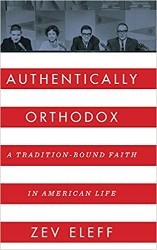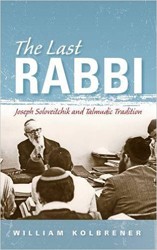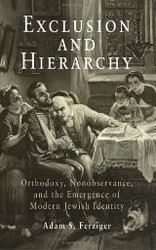It is not easy to penetrate the world of Rabbi Joseph B. Soloveitchik. Thousands of rabbis and advanced Talmudic scholars have sat enthralled through his three to four hour lectures and classes. Academics debate the finer points of his published articles at conferences all over the world. Unfortunately only a gifted few fully comprehend that the Eastern European Talmudic gaon and universally recognized rabbinic scholar is one and the same as the Western European university-trained Jewish theologian and philosopher. Not all of his Talmud students read or could understand his philosophy, nor could many of those who read his philosophy ever comprehend his Talmudic analyses. For the Rav, as he was affectionately and respectfully known, halakha, the system of Jewish law, is supreme and all-encompassing and everything must be viewed from within that perspective. His rapier Talmudic analyses no less than his philosophic essays all flow from this perspective. Naturally along the way many other sources are brought along for illustrative purposes.
Professor Gerald Blidstein is among those few Soloveitchik scholars who are truly competent to provide an interpretive guide and analysis to his writings. A former student of the Rav and a world-class scholar in his own right, Blidstein discusses some of the Rav’s essays and major themes and offers interpretations of some themes that might be considered novel or bold.
Although the Rav supported Israel and religious Zionism, and celebrated the rebirth of Israel as “an almost supernatural occurrence,” it was not a major theme in the Rav’s writings, according to Blidstein. He describes how the Rav felt breaking with his family’s anti-Zionist position. He clarifies the Rav’s position regarding Jewish/gentile relationships: there is no shared spiritual discourse and no common language. Each faith community has its own autonomy. Hence, no dialogue — at least not on religious themes.
Rav Soloveitchik’s thoughts on faith after the Holocaust and the establishment of Israel, the theological and existential tension between the individual and the community, his theology of marriage and its broader implications, and his view of human mortality and mourning are also explored in depth. Even if one has not read the original essays, these interpretive insights are fascinating.
Blidstein explores at length the role of the individual viv-a-vis the community. Rav Soloveitchik rejected a secular Jewish existence, which he regarded as a betrayal of Jewish destiny. His private correspondence indicates the broad range of topics on which he was consulted by world leaders, politicians, college presidents, and other rabbis. Of special interest is the exchange of letters concerning repeated requests that he accept the position of Chief Rabbi of Israel. The Rav was opposed to empty ceremonialism and since the Chief Rabbi had no control over Jewish education, he refused.
The legacy of Rabbi Soloveitchik is assured by the many students who disseminate his teachings. It is unfortunate that his Talmudic novellae and his theological and philosophical essays exist in two parallel universes. In the meantime, those wishing to gain an insight into the mind of one of the towering thinkers of the twentieth century would do well to study this volume.





